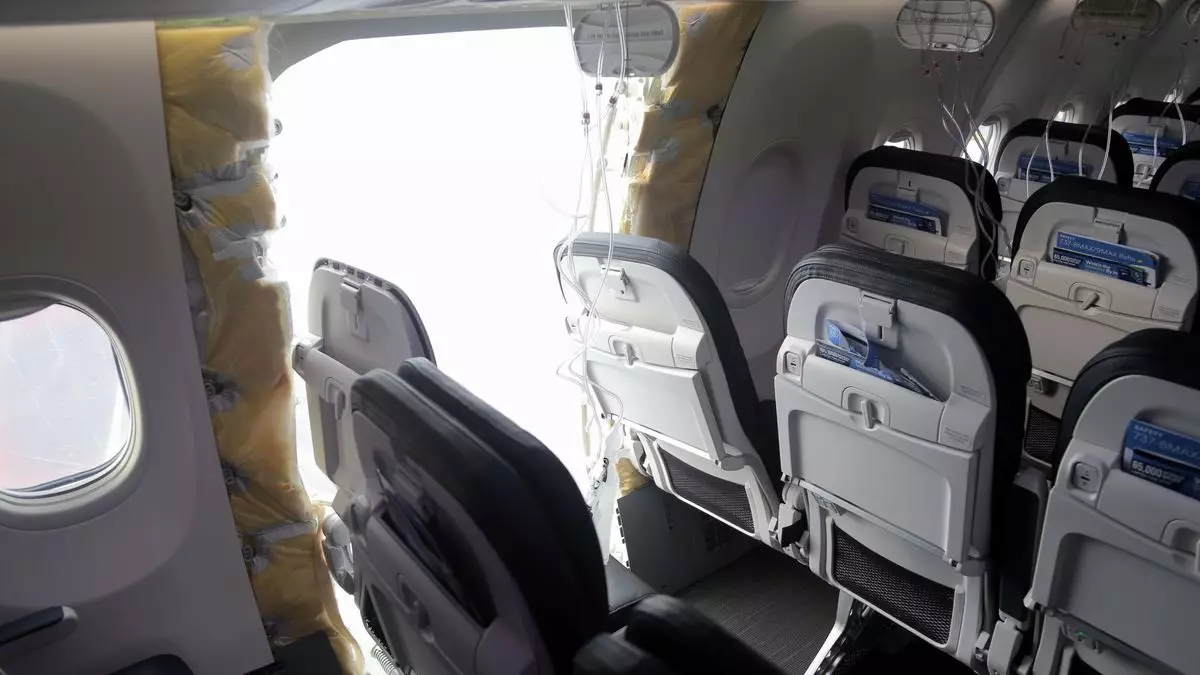Boeing workers have come forward with alarming allegations regarding their experiences at the factory. One of the most shocking revelations is that employees were pressured to work at an extremely fast pace, leading to a compromised safety culture. The National Transportation Safety Board investigators heard firsthand from a Boeing door installer who disclosed that there was a constant demand to keep the assembly line moving, even if it meant taking shortcuts. This pressure resulted in workers trying to complete tasks too quickly, increasing the likelihood of errors and mistakes.
Lack of Proper Training and Qualifications
Another concerning aspect highlighted in the investigation is the lack of proper training provided to workers. Specifically, the workers who handled the door plugs on the Boeing 737-9 Max were not adequately trained for this task. Opening and closing the door plugs, which later led to the blowout on the Alaska Airlines jet, should have been performed by qualified individuals. However, Boeing factory workers found themselves in uncharted territory, being forced to carry out tasks for which they were not qualified, further illustrating the disregard for safety protocols within the company.
The investigation revealed that the panel responsible for the blowout on the Boeing 737-9 Max was made and installed by a supplier, Spirit AeroSystems. After the panel was removed for repairs at a Boeing factory, critical bolts securing the door plug were not replaced. This lapse in oversight raises questions about the accountability and quality control measures in place throughout the manufacturing process. The lack of proper documentation further complicates the situation, leaving the safety board members to question Boeing officials about the chain of events that led to this catastrophic mistake.
Implications and Industry Repercussions
The aftermath of the blowout on Flight 1282 has left Boeing facing legal jeopardy and severe reputational damage. The safety concerns raised by the workers, coupled with the lapses in oversight and training, have highlighted systemic issues within the company. Additionally, the Federal Aviation Administration has imposed production limits on Boeing until it can ensure that its manufacturing processes are producing safe planes. The repercussions of these safety failures extend beyond Boeing, casting a shadow over the aviation industry as a whole.
In response to the investigation findings, Boeing and Spirit executives have acknowledged the need for significant changes to prevent similar incidents in the future. Both companies have attributed some of the shortcomings to the turnover in personnel during the coronavirus pandemic, leading to less experienced workforces. Boeing’s efforts to increase training and enhance quality control measures signal a step in the right direction. However, rebuilding trust and ensuring safety must remain the top priorities for Boeing and other stakeholders in the aviation industry.
The revelations from the investigation into the blowout on the Alaska Airlines jet paint a grim picture of Boeing’s safety culture and manufacturing practices. The pressure on factory workers, lack of training, and oversight failures have exposed significant vulnerabilities in the company’s operations. Moving forward, Boeing must prioritize safety, accountability, and transparency to regain the trust of regulators, airlines, and passengers. The lessons learned from this incident should serve as a stark reminder of the consequences of complacency in an industry where safety is paramount.


Leave a Reply